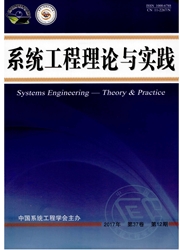

 中文摘要:
中文摘要:
利用经PSM匹配后的A股公司定向增发样本,研究发现:(1)公司定向增发当年存在正向盈余管理行为;(2)当向机构增发时,增发后一年(增发股解锁年)存在正向盈余管理,而当向大股东增发时,增发后第三年(增发股解锁年)存在正向盈余管理;(3)无证据显示公司在定增前进行了盈余操控。增发组与对照组在增发股解锁年的账面业绩不存在显著差异,公司盈余管理行为可能是为了掩饰实际业绩的下滑。
 英文摘要:
英文摘要:
Using matched(PSM)sample of Chinese A-share listed firms, we find that listed firms engage in significant positive earnings management on the year that private equity placement(PEP)had taken place, and that privately placed equity lock-up period(one-year lock-up period for outside institutional investors and three years for internal major shareholders)had expired. There is no evidence that listed firms manage their earnings before PEP. We also find no significant difference of book return on assets between PEP firms and non-PEP firms when stock lock-up period expired, indicating that the aim of earnings management at the end of stock lock-up period is to cover the decline of firm's financial performance.
 同期刊论文项目
同期刊论文项目
 同项目期刊论文
同项目期刊论文
 期刊信息
期刊信息
